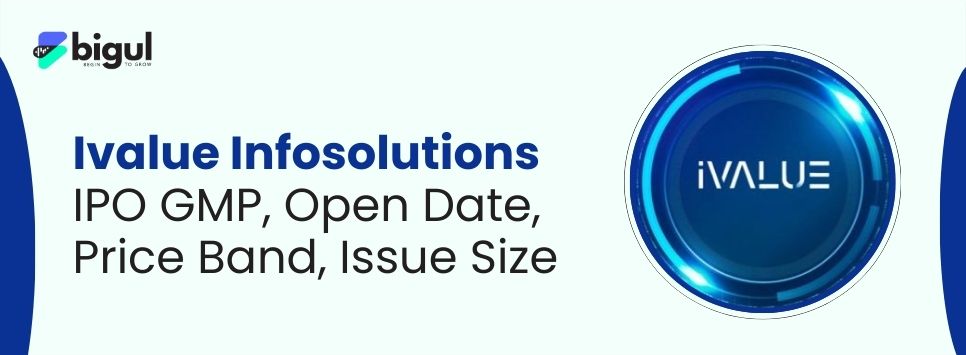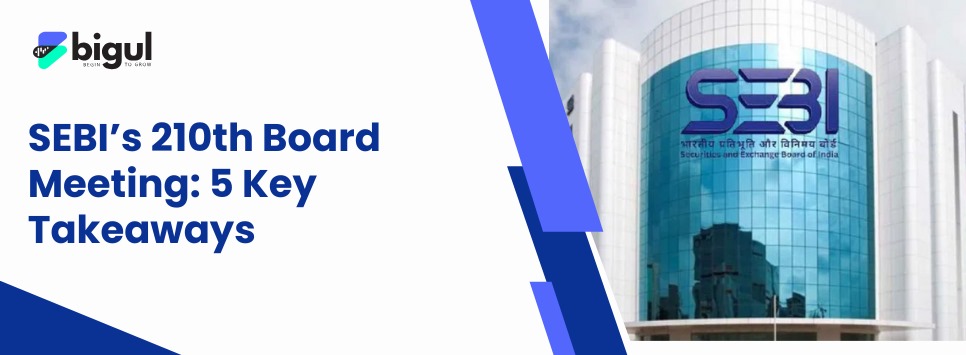The Securities and Exchange Board of India (SEBI) recently held its 210th board meeting, and some important decisions came out of it—ones that could make life easier for companies, investors, and even the government. From simplifying how state-run companies can exit the stock market to making IPOs more founder-friendly and pushing toward a completely paperless securities system, SEBI’s updates are meant to modernise and streamline India’s capital markets.
Let’s break down the top five takeaways from this meeting, without the jargon and complexity, so you get what’s changing and why it matters.
Also Read | Can the Nifty 50 Sustain Its Rally Amid Middle East Turmoil?
1. A Simpler Exit Path for Government-Owned Companies
SEBI introduced a special rule that makes it easier for certain public sector undertakings (PSUs) to delist from the stock market. In simple terms, if a government already owns 90% or more of a company—either directly or through other PSUs—that company can now delist by offering to buy out the remaining shareholders at a pre-fixed price.
This is a big deal because the usual delisting process is lengthy and involves many steps, including securing a two-thirds shareholder approval. With this new rule, the company can skip the traditional voting requirement, provided they offer a price that’s at least 15% higher than the regulatory floor price.
It is mainly for the PSU which are struglling with market goals. It helps them exit the market and cutting down red tape.
2. IPO Reforms: Easier Rules for Startups and Founders
Launching an Initial Public Offering (IPO) has never been easy, especially for startups and their early investors. But SEBI is working to change that.
One big shift is that the one-year lock-in period on certain types of converted shares—like those that come from converting debentures or bonds into stock—has now been removed. That implies that investors who are putting their instruments into shares are not obliged to wait a whole year in order to sell their shares in the IPO, as they could do immediately.
In another significant change, institutional investors like banks, mutual funds, and venture capital firms can now count their converted shares toward the minimum promoter holding required during an IPO. Earlier, only the actual promoters could do this.
There’s also a win for founders. Until now, startup founders who received employee stock options (ESOPs) had to give them up before going public. But SEBI’s new rule allows founders to retain or exercise these ESOPs as long as they were granted at least one year before the IPO filing. This is great news for startup leaders who often rely on ESOPs as long-term incentives.
Together, these reforms remove some of the bottlenecks in the IPO process, making it more attractive and founder-friendly—especially for startups planning to list in India instead of heading abroad.
3. Push for Dematerialisation: Going Fully Paperless
SEBI is doubling down on its mission to make the Indian market fully digital. One of the most notable decisions from the board meeting was the requirement that key shareholders hold all their shares in dematerialised (demat) form before filing for an IPO.
This rule now applies to promoters, directors, and other significant stakeholders. The goal is simple: remove paper-based share certificates entirely and ensure everything is recorded digitally through depositories like NSDL or CDSL.
Such a step should minimize the chances of fraud, mistake or loss of papers. In the long run, corporate actions like bonus issues, mergers, or stock splits will also need to be done only in demat form, making the Indian capital markets cleaner and more modern.
4. Streamlined Disclosures for Fundraising
Another key decision is around simplifying how companies raise money from institutional investors. When a company issues new shares to big investors through a process known as Qualified Institutional Placement (QIP), it previously had to provide exhaustive, detailed documentation.
Now, SEBI has allowed companies to use a shorter and more focused disclosure format. This includes only essential financials, business summaries, and major risk factors.
In a related move, SEBI also made life easier for foreign investors buying government securities. These investors will now face fewer compliance checks and paperwork renewals. The process for Non-Resident Indians (NRIs) and Overseas Citizens of India (OCIs) investing in government bonds has also been simplified.
5. Flexible Investment Options for Funds and Investors
SEBI also approved new options for fund managers to invest more dynamically. For instance, venture capital and private equity funds can now set up co-investment schemes within the same regulatory umbrella. This means that fund managers and even existing investors can invest additional money into specific startups or ventures without having to create separate structures.
This added flexibility is expected to encourage more targeted and high-conviction investments, especially in the startup ecosystem.
In addition, SEBI cleared the way for a one-time settlement window for certain long-pending regulatory cases, including some related to the old NSEL crisis and stranded venture funds. This move gives affected parties a chance to settle past issues and move on.
SEBI has also relaxed rules for the merchant bankers while allowing them to engage in additional services as long as they are under the law.
Conclusion
SEBI’s 210th board meeting brought in some meaningful reforms. Whether it’s making it easier for government-run companies to delist, removing roadblocks for IPO-bound startups, mandating digital shareholding, or creating simpler routes for investments and fundraising, the direction is clear. SEBI is looking to make the market more efficient and inclusive for investors.
Also Read | Revision of Expiry Day for Index and Stock Derivatives – NSE Circular 103/2025




.jpg)





.jpg)
